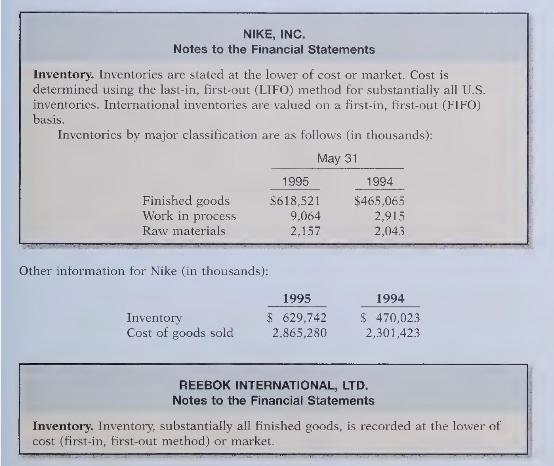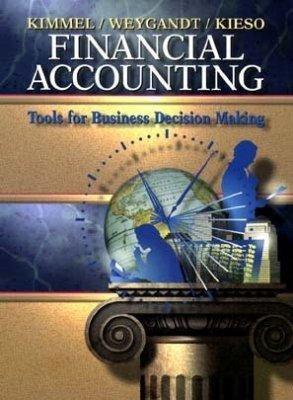Minicase 2 Nike and Reebok} Nike and Reebok compete head-to-head in the sport shoe and sport apparel
Question:
Minicase 2 Nike and Reebok}
Nike and Reebok compete head-to-head in the sport shoe and sport apparel business. For both companies, inventory is a significant portion of total assets. The following information was taken from each company's financial statements and notes to those financial statements.

Other information for Reebok (in thousands):

\section*{Instructions}
Address each of these questions on how these two companies manage inventory:
(a) What problems of inventory management face Nike and Reebok in the international sport apparel industry?
(b) What inventory cost flow assumptions does each company use? Why might Nike use a different approach for U.S. operations than for international operations? What are the implications of their respective cost flow assumptions for their financial statements?
(c) Nike provides more detail regarding the nature of its inventory (e.g., raw materials, work in process, and finished goods) than does Reebok. How might this additional information be useful in evaluating Nike?
(d) Calculate and interpret the inventory turnover ratio and days in inventory for each company. Comment on how the use of different cost flow methods by the two companies affects your ability to compare their ratios.
Step by Step Answer:

Financial Accounting Tools For Business Decision Making
ISBN: 9780471169192
1st Edition
Authors: Paul D. Kimmel, Jerry J. Weygandt, Donald E. Kieso





